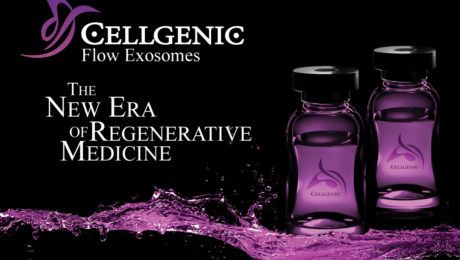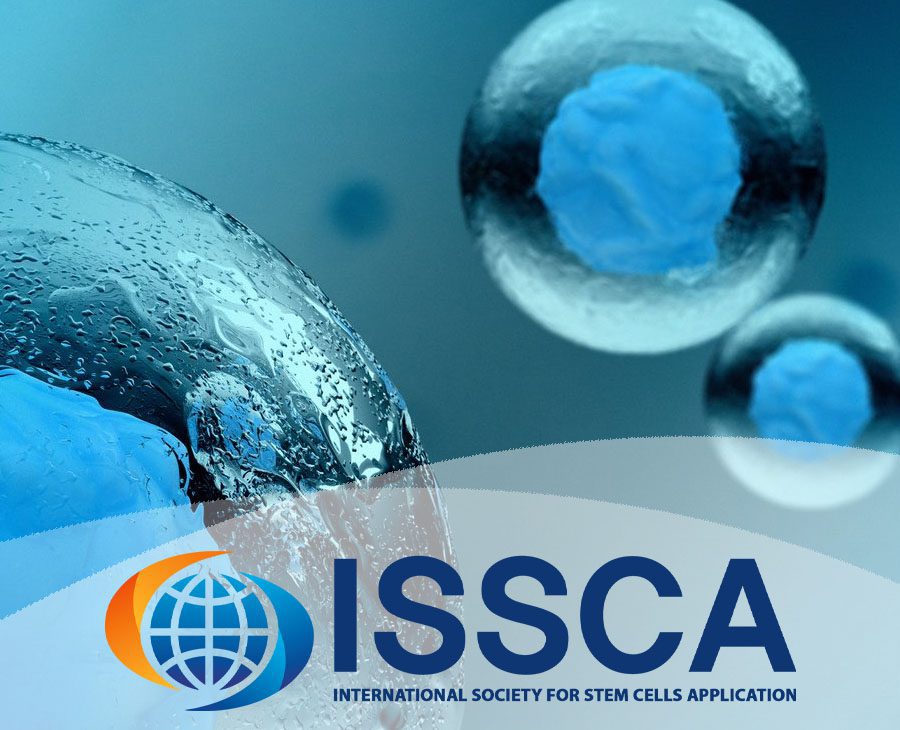Global Stem Cells Group Releases New Product to Meet Growing Demand for Birth Tissue Derived Compounds
Cellgenic Flow Exosomes has a wide range of therapeutic implications, including hair loss and pain management
MIAMI LAKES, Florida—The Global Stem Cells Group (GSCG) has announced the release of a new product in response to growing demands from regenerative medicine practitioners for cellular products derived from birth tissue. The product, Cellgenic Flow Exosomes, is 100% natural and is available in a 1 mL vial comprised of 5 billion exosomes per mL and is currently manufactured in Mexico and in Global’s US-based facilities.
As the popularity and efficacy of stem cells treatments increase across the globe, the demand for cellular products like Cellgenic have also increased. With this demand in mind, the GSCG–a global leader in stem cell research, patient application, and physician training–sought to create an innovative cellular product to meet the needs of physicians looking to offer regenerative medicine treatments in their existing practices.
Cellgenic is primarily comprised of exosomes, cell-derived non-particles that play a pivotal role in cell-to-cell communication that are involved in a wide range of physiological processes. Exosomes play an important role in the transfer of proteins, mRNA, miRNA, and other bioactive molecules between cells and regulate gene expression in recipient cells, thus influencing various molecular pathways.
An increasing amount of attention has been paid to exosomes in recent years thanks to the wide range of therapeutic implications they may hold. Some of the most effective uses for exosomes have come in hair therapy and pain management.
Using Cellgenic as a treatment for hair loss has resulted in prominent hair growth results in both men and women. It is highly recommended for those who are too young for hair transplant surgery and for those within the earlier stages of the hair loss cycle.
In terms of pain management, Cellgenic has shown promise in delivering relief from pain and discomfort and may potentially stimulate repair as opposed to blocking or masking them. Common pain and degenerative conditions that Cellgenic may help treat include osteoarthritis, knee pain, shoulder pain, nerve pain, tendonitis, and slow- and non-healing wounds and burns.
For doctors who are interested in learning more about Cellgenic, the GSCG has developed an online course to provide them with the relevant knowledge needed to make a decision about incorporating allogeneic compounds into their treatment protocols.
“Global’s newest product innovation, Cellgenic Flow Exosomes, is an exciting addition to our product portfolio,” said Benito Novas, CEO of the Global Stem Cells Group. “Our goal is to continually innovate and meet the demands of physicians practicing regenerative medicine by providing cutting-edge therapies for those suffering from degenerative diseases. The release of our Cellgenic product accomplishes this goal while also contributing to our mission of being a leader in stem cells research.”
To learn more about Cellgenic Flow Exosomes, visit https://cellgenic.com/.
- Published in News
Knee replacement alternatives
Knee replacement, also known as knee arthroplasty, involves replacing a knee joint with a prosthetic device. Explore the alternatives to this procedure and their benefits.
Why Consider Knee Replacement Alternatives?
Many patients seek alternatives due to persistent pain and potential risks associated with knee replacement surgery.
Challenges of Knee Replacement
Patients often experience continued pain post-surgery, with studies showing significant discomfort even years later.
Common Risks of Knee Replacement
Understand the risks involved, including increased susceptibility to cardiovascular events and allergic reactions to prosthetic materials.
Types of Knee Replacement Alternatives
Discover effective alternatives that offer relief without the complexities of surgery.
Steroid Injections
While providing short-term relief, steroid injections may not offer long-term solutions due to their impact on cartilage.
Viscosupplementation
Gel-like substances such as hyaluronic acid injections offer relief for knee arthritis, though effectiveness may vary over multiple doses.
Knee Nerve Ablation
A promising procedure that involves disabling nerves around the knee joint to alleviate pain, though long-term outcomes are still under study.
Orthobiologics
Utilizing natural substances like PRP and BMC to promote healing and reduce degradation of knee tissues, offering both autologous and allogeneic options.
Platelet Rich Plasma (PRP)
Derived from the patient’s blood, PRP injections foster cartilage repair and reduce inflammation, beneficial for moderate knee arthritis.
Percutaneous Knee Arthroplasty (PKA)
A sophisticated procedure involving precise injections of bone marrow concentrates guided by ultrasound, effective even in severe cases of knee arthritis.
- Published in Blog
- 1
- 2



![services-knee-replacement[1]](https://www.issca.us/wp-content/uploads/2020/08/services-knee-replacement1-460x260_c.jpg)
